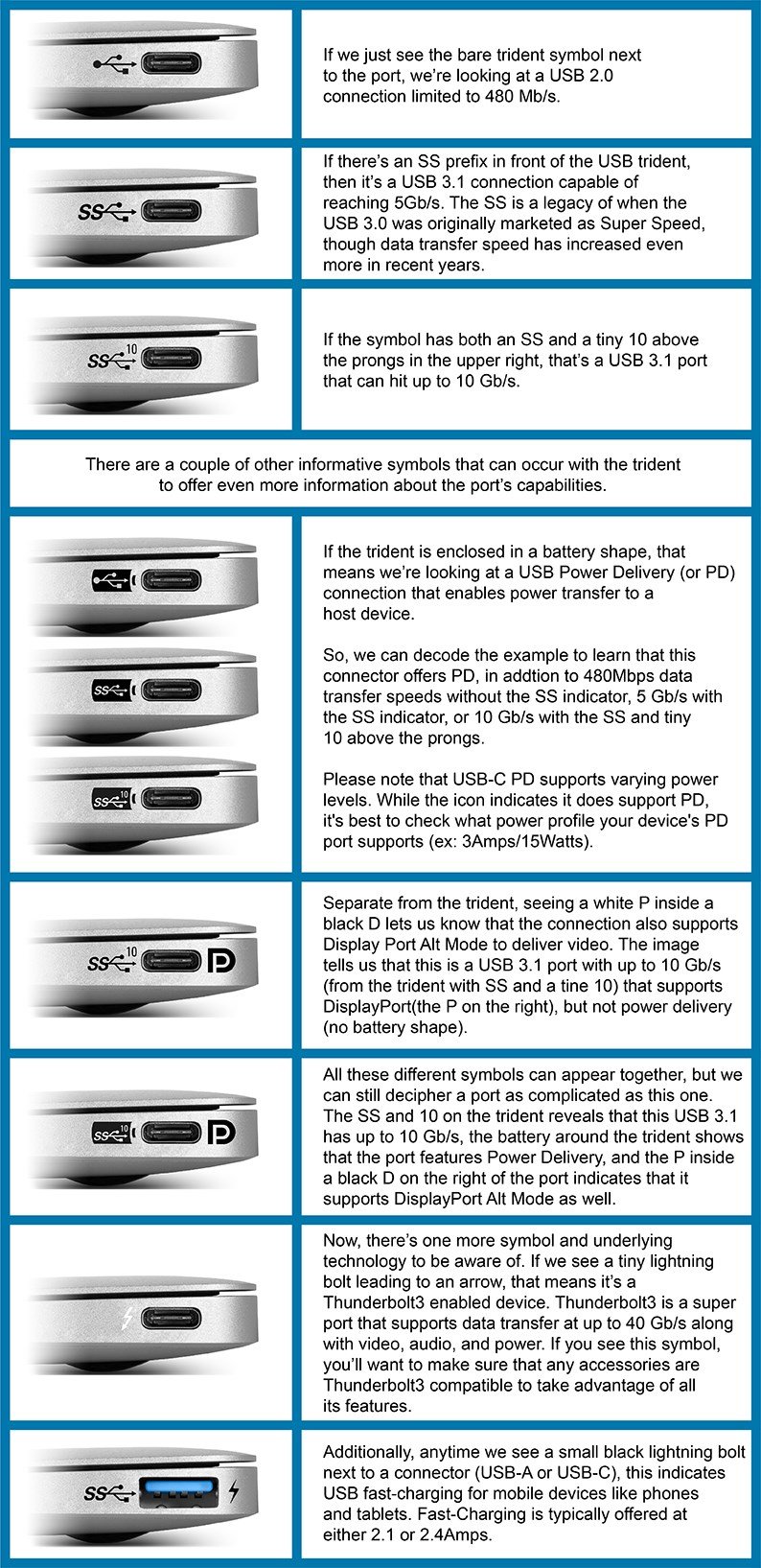The standard might be complicated if you want the specifics, but for everyday use it's incredibly simple, and I love it. The number of times I needed this information is 1, even though most of my devices, including an external monitor, are USB-C.
Technology
This is a most excellent place for technology news and articles.
Our Rules
- Follow the lemmy.world rules.
- Only tech related news or articles.
- Be excellent to each other!
- Mod approved content bots can post up to 10 articles per day.
- Threads asking for personal tech support may be deleted.
- Politics threads may be removed.
- No memes allowed as posts, OK to post as comments.
- Only approved bots from the list below, this includes using AI responses and summaries. To ask if your bot can be added please contact a mod.
- Check for duplicates before posting, duplicates may be removed
- Accounts 7 days and younger will have their posts automatically removed.
Approved Bots
My laptop has two USBC ports. No logos of any kind. They are Thunderbolt 4. ¯_(ツ)_/¯
Every device I have just has a couple of blue ones and a couple of black ones, perhaps some orange ones and some USB-C ports, and good luck figuring out what they all can do. No symbols anywhere.
It's cool, the colors are just for aesthetics. Internally they're all connected to the same USB controller chip anyway.
/s probably
Edit: it was a joke. I know blue means 3.
Well, except all the legacy symbols on devices older than current gen.
Came here disappointed to see no one said anything about Black D inside white P
Edit: yes, I have the humour of a 16 yo
Handy guide, but this whole USB situation is a cock-up, since it needs the freakin guide in the first place.
Meh, while there really could be less. At least they are all physically compatible. And backwards protocol compatible to the lowest common denominator. Which is a huge step forward.
The USB standards are just... Comically overcomplicated. And almost everything about it is optional. They need a full revamp, making it simpler and mandatory on all future ports, devices and cables.
But they won't do that, will they.
Almost everything about it needs to be optional because sometimes USB is used to charge some cheap battery powered thing and sometimes it’s used to make a backup of a harddrive and sometimes it’s charging my laptop with enough power for it to be rendering video but still have a net charge increase to the battery while also providing Ethernet, video output, and keyboard/mouse input over the same one port.
EDIT to make it more clear why the variability of USB standards is what it is, compare a modern laptop to one from 10 years ago.
The older laptop has:
- for video, an HDMI port (or the less common mini HDMI port), and perhaps a mini DP port
- an Ethernet port
- a charging plug
- possibly some FireWire ports (may or may not be the same as the mini DP port)
- USB A ports for keyboard/mouse and other random devices
The newer laptop has:
- USBC ports that can do all of the above
The perhiperals, however, don’t support all of the features. They only support the features they actually use. As long as the laptop supports all of the optional features, you don’t need to worry about it.
The is especially helpful for less technical users who may not want to know what the difference between HDMI and DisplayPort is. With a fully USBC based laptop and USBC perhipals you can just plug it in and it will work.
Of course this is all dependent on the laptop implementing all of the extra features, which is still only really true of more expensive laptops.
There should be a way to make it simpler.
Idk, something like "for USB 4 you NEED all of these".
Or maybe USB 4 with levels like bronze, silver, etc.
Or make displaying data rate, display and charging capabilities all mandatory on all ports...
I'm not sure what, but "it's a USB port; look in the manual and if you're lucky you might learn what it does exactly" ain't it.
I miss FireWire, too.
I remember having a FireWire in one of the family desktops when I was a kid. Can't remember what we might have used it for, though.
It resides in the same vague memory hole as the Zip drive that we had.
Firewire was phenomenal for external hard drives. The speed was almost as fast as the drives so you were rarely limited by the port.
Yep, that's because the actual data transfer was handled by the more capable device, instead of only the guest. I think the standard also required a minimum throughput, iirc, whereas USB only had a maximum.
Yeah, the ZIP drive was just starting to take off when the Internet killed needing a sneaker net (at least of that size). Add in CD-ROM drives which you needed anyway. And good night.
I had a FireWire hard drive! I remember I bought specifically the enclosure that supported both standards since my motherboard had a FireWire port and on paper it was faster than usb! Too bad the HDD was as slow as molasses
Now that was a peripheral protocol standard.
sigh
What is the difference between USA and USB?
One connects to all your devices and accesses your data, the other is a hardware standard.
One gives you power, the other does everything it can to make sure you never do.
OIL
The superiority of german aryan ports proven once again.
(this is a joke, nazism is evil and I hate it)
